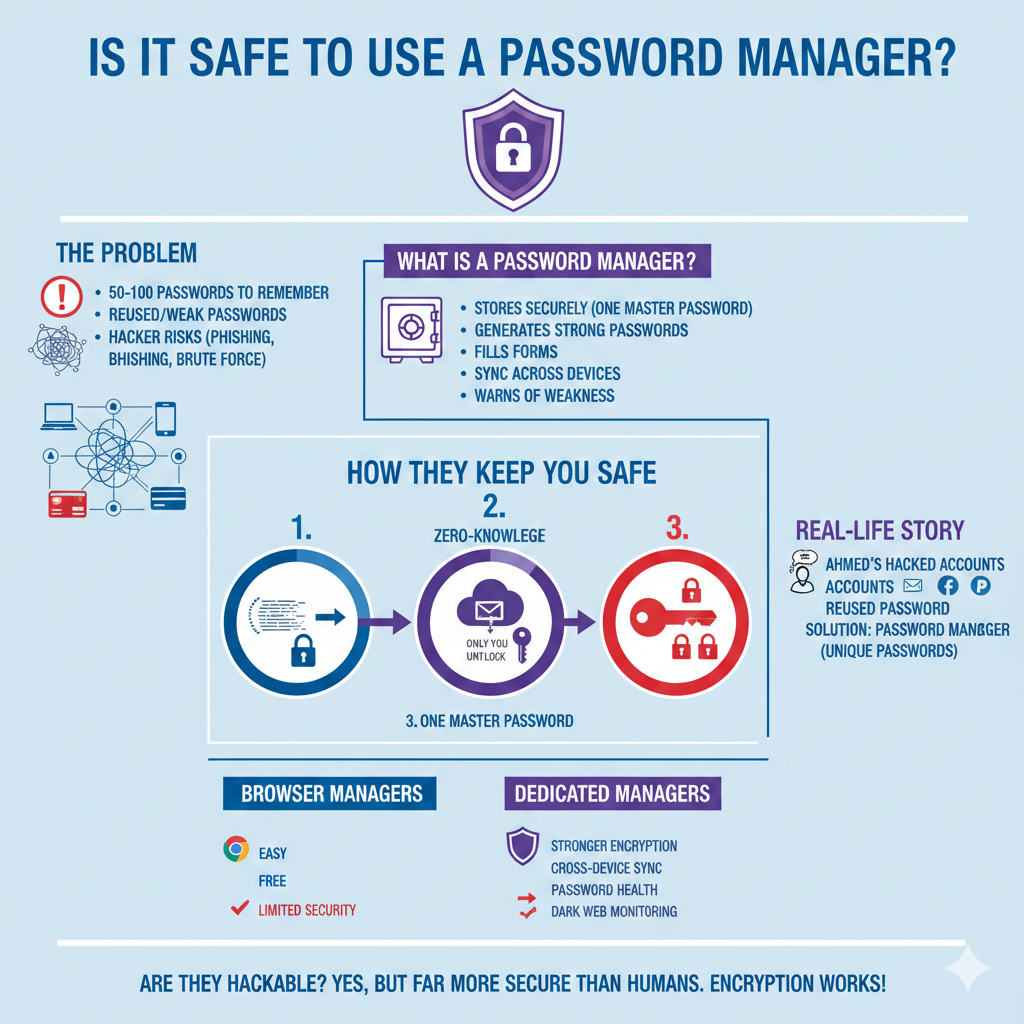In today’s online world, we use strong passwords for everything from checking our emails to logging into bank accounts, social media, shopping websites, and even health apps. Think of your password like the key to your house. You wouldn’t leave your front door unlocked, right? The same idea applies to your digital life. A weak password is like leaving your online door wide open for hackers.
The Problem With Weak Passwords
Many people use simple and easy-to-remember passwords. It might be your pet’s name, your birth year, or a word like “password123.” Sometimes people even use the same password for more than one account. This makes things very risky. If a hacker figures out one password, they can access all your other accounts too.
Enter the Random Password Generator
Random password generators were created to help solve this problem. These are tools that make long, strong, and unique passwords using letters, numbers, and symbols. They can make passwords that are hard for hackers to guess and save you from having to come up with one yourself.
But many people wonder: Are these strong password generators safe to use? Can we trust them? In this guide, we’ll break it down in simple terms and help you understand how to use them safely.
What is a Random Password Generator?
A random password generator is a tool that creates a strong password for you. It puts together different letters (both capital and lowercase), numbers, and special characters (like !, @, #, or \$) in a random order. The goal is to make a password that is very hard to guess.
There are different types of password generators:
1. Offline Generators: These are apps or programs you download to your computer or phone. They don’t need the internet to work, so the password stays on your device.
2. Online Generators: These are websites where you click a button and get a strong password. They are easy to use but need the internet. This means your password might travel online, which can be risky if the site isn’t secure.
3. Built-In Generators in Password Managers: Many password managers like 1Password, LastPass, or Bitwarden have password generators built in. These tools not only create strong passwords but also save them for you securely.
All types use a method called CSPRNG (Cryptographically Secure Pseudorandom Number Generator). This means they create passwords that are truly random and very hard for anyone to guess.
Why You Should Use a Password Generator
1. Better Security:
When we make passwords ourselves, we tend to use words or patterns that are easy to remember. Hackers know this and use programs to try common passwords. Randomly generated passwords don’t follow any pattern, making them much harder to crack.
2. Saves Time:
Coming up with a good password takes time and effort. With a password generator, you can create a strong password in just one click.
3. Avoids Reusing Passwords:
If you use the same password for many accounts and one gets hacked, the others are at risk too. A password generator helps you make a unique password for each site.
4. Works Well with Password Managers:
If you use a password manager, the built-in generator is super helpful. It creates a strong password and saves it right away so you don’t have to remember it.
What Are the Risks?
Even though random password generators are useful, there are a few things to watch out for:
1. Can You Trust the Generator?
Some websites that offer password generators may not be safe. They could be set up to steal the passwords they generate. Always use well-known and trusted websites or tools. Look for companies with good reviews and clear information about how they keep your data safe.
2. How Random is the Password?
If the generator doesn’t use proper technology (like CSPRNG), it might not be truly random. This means hackers might still be able to guess it. Stick with tools that say they use “cryptographically secure” methods.
3. What if the Tool Disappears?
If you rely on an online tool or app and it suddenly shuts down, you could be stuck. That’s why it’s important to save your passwords somewhere safe, like in a password manager.
4. Website Limitations: Some websites don’t allow certain characters or have rules like “your password must be less than 16 characters.” If your generated password doesn’t meet these rules, you might need to edit it.
5. Accessibility Issues:
For some people, using complex tools or remembering random passwords may be difficult. A password manager can help by storing them for you, so you don’t need to remember them all.
Real-Life Mistakes: What Happens When Generators Go Wrong
Sometimes, even good tools have problems. Here are two famous examples:
Netscape (1995): The Netscape browser used weak random numbers to make secure connections. Hackers figured out how to guess those numbers and break into what were thought to be safe websites.
Debian Linux (2006-2008): A small change in the code caused the system to use a much smaller pool of random numbers. This made it easier for hackers to guess passwords or keys. It affected many systems for over two years.
These examples show why it’s important to use tools that are tested and updated often.
How to Use Random Password Generators Safely?
Here are easy steps to make sure you’re using these tools in a safe way:
1. Pick a Trusted Tool:
Use generators that are built into trusted password managers or well-known apps. Look for names like Bitwarden, 1Password, or LastPass.
2. Use Offline or Built-In Generators:
Whenever possible, use an offline generator or one that is built into a password manager. This keeps your password on your device and off the internet.
3. Keep Everything Updated:
Make sure your password generator app or password manager is always up to date. This protects you from new security problems.
4. Use Other Security Steps Too:
Turn on Multi-Factor Authentication (MFA). This means even if someone gets your password, they still need a second code (like from your phone) to get in.
Change important passwords every 6 to 12 months.
Be careful of fake emails and websites asking for your login info. This is called phishing.
Other Ways to Make Strong Passwords
If you don’t want to use a random generator, or want a backup method, here are some other good ways to make strong passwords:
1. Passphrases:
These are combinations of random words. For example, “YellowTigerGlassOcean” is long, easy to remember, and hard to guess. Adding numbers or symbols makes it even stronger.
2. Use Acronyms:
Take a sentence and turn it into letters. “My first pet was a dog named Max in 2003!” becomes “MfpwadnMi2003!”
3. Diceware Method:
This is a fun and very secure method. You roll dice to choose random words from a list. It’s fully offline and gives you a strong, easy-to-remember passphrase.
Conclusion: Are Random Password Generators Safe?
Yes, they are safe if you use the right ones. They can make your life easier and your online accounts much safer. But not all password generators are created equal. Stick with tools you trust, and never use shady or unknown websites to create your passwords.
The best choice is to use a generator built into a good password manager. It makes strong passwords and stores them for you. And always backup your security with other tools like multi-factor authentication.
Your digital life is important. Don’t leave it unprotected. Start using strong, unique passwords today with a reliable random password generator. Your future self will thank you.


